Daniel Abel
Merlin HugeCTR: GPU-accelerated Recommender System Training and Inference
Oct 17, 2022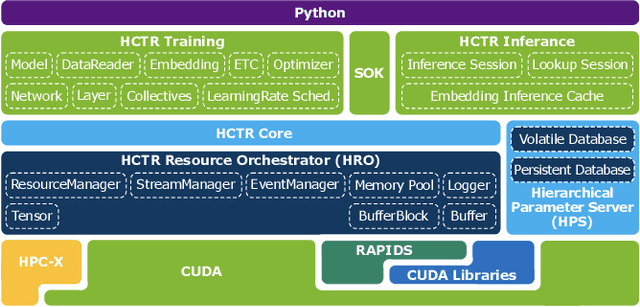
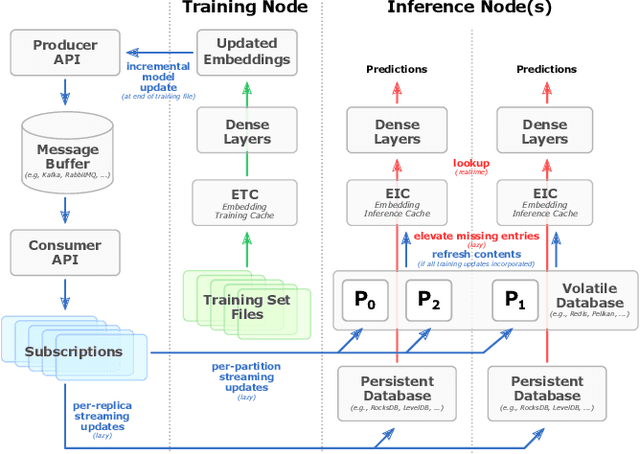
Abstract:In this talk, we introduce Merlin HugeCTR. Merlin HugeCTR is an open source, GPU-accelerated integration framework for click-through rate estimation. It optimizes both training and inference, whilst enabling model training at scale with model-parallel embeddings and data-parallel neural networks. In particular, Merlin HugeCTR combines a high-performance GPU embedding cache with an hierarchical storage architecture, to realize low-latency retrieval of embeddings for online model inference tasks. In the MLPerf v1.0 DLRM model training benchmark, Merlin HugeCTR achieves a speedup of up to 24.6x on a single DGX A100 (8x A100) over PyTorch on 4x4-socket CPU nodes (4x4x28 cores). Merlin HugeCTR can also take advantage of multi-node environments to accelerate training even further. Since late 2021, Merlin HugeCTR additionally features a hierarchical parameter server (HPS) and supports deployment via the NVIDIA Triton server framework, to leverage the computational capabilities of GPUs for high-speed recommendation model inference. Using this HPS, Merlin HugeCTR users can achieve a 5~62x speedup (batch size dependent) for popular recommendation models over CPU baseline implementations, and dramatically reduce their end-to-end inference latency.
* 4 pages
Deep Learning for Climate Model Output Statistics
Dec 09, 2020
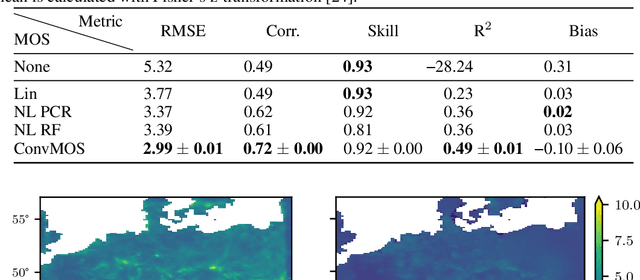
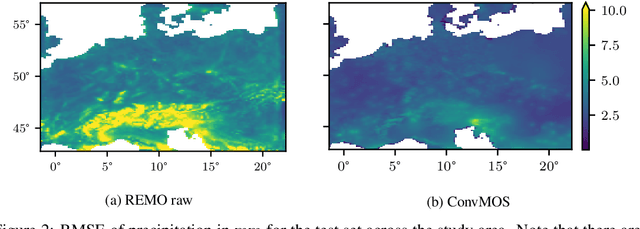
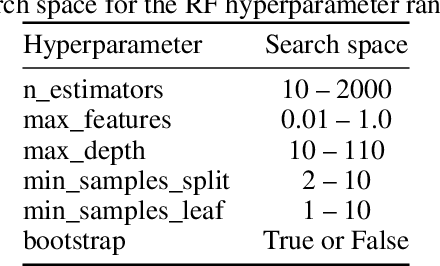
Abstract:Climate models are an important tool for the assessment of prospective climate change effects but they suffer from systematic and representation errors, especially for precipitation. Model output statistics (MOS) reduce these errors by fitting the model output to observational data with machine learning. In this work, we explore the feasibility and potential of deep learning with convolutional neural networks (CNNs) for MOS. We propose the CNN architecture ConvMOS specifically designed for reducing errors in climate model outputs and apply it to the climate model REMO. Our results show a considerable reduction of errors and mostly improved performance compared to three commonly used MOS approaches.
 Add to Chrome
Add to Chrome Add to Firefox
Add to Firefox Add to Edge
Add to Edge